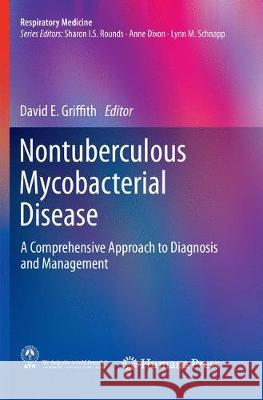Nontuberculous Mycobacterial Disease: A Comprehensive Approach to Diagnosis and Management » książka
topmenu
Nontuberculous Mycobacterial Disease: A Comprehensive Approach to Diagnosis and Management
ISBN-13: 9783030066697 / Angielski / Miękka / 2018 / 515 str.
Kategorie BISAC:
Wydawca:
Humana
Seria wydawnicza:
Język:
Angielski
ISBN-13:
9783030066697
Rok wydania:
2018
Dostępne języki:
Numer serii:
000353203
Ilość stron:
515
Oprawa:
Miękka











